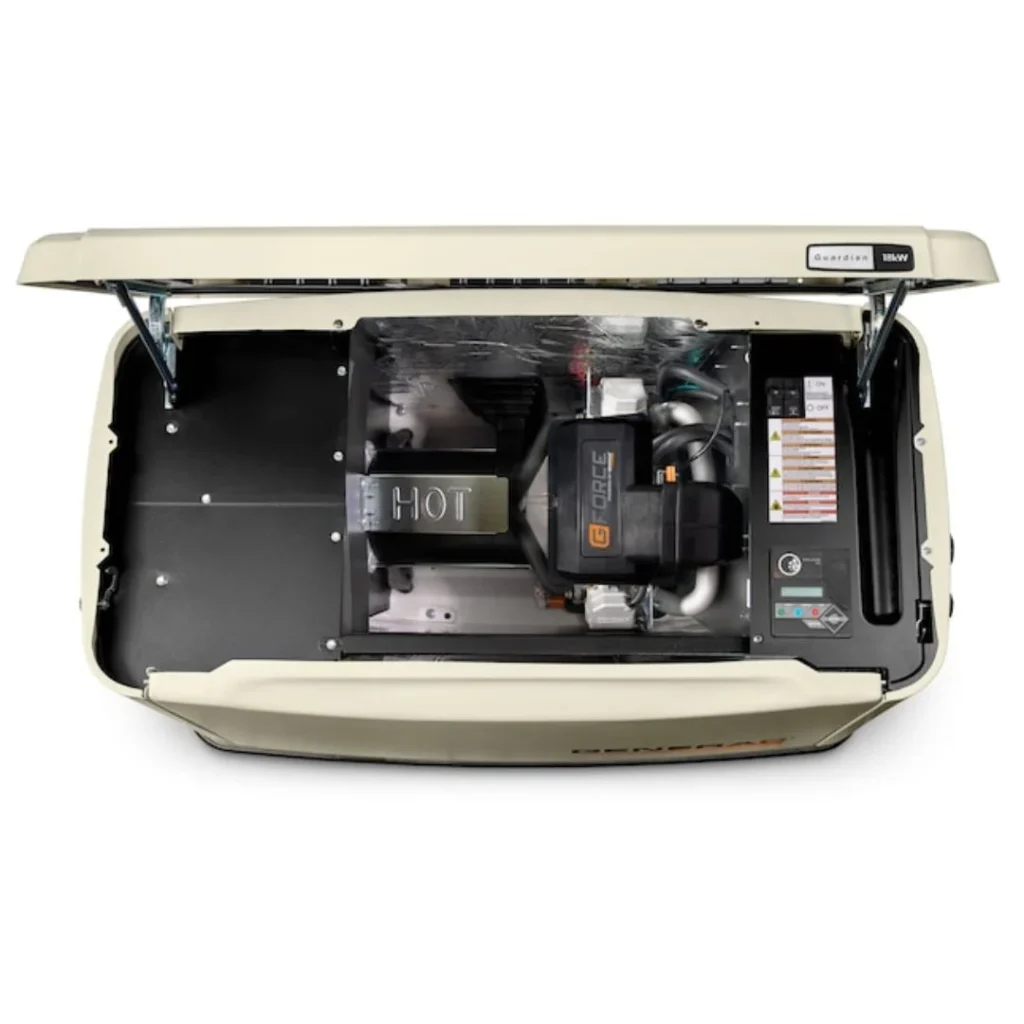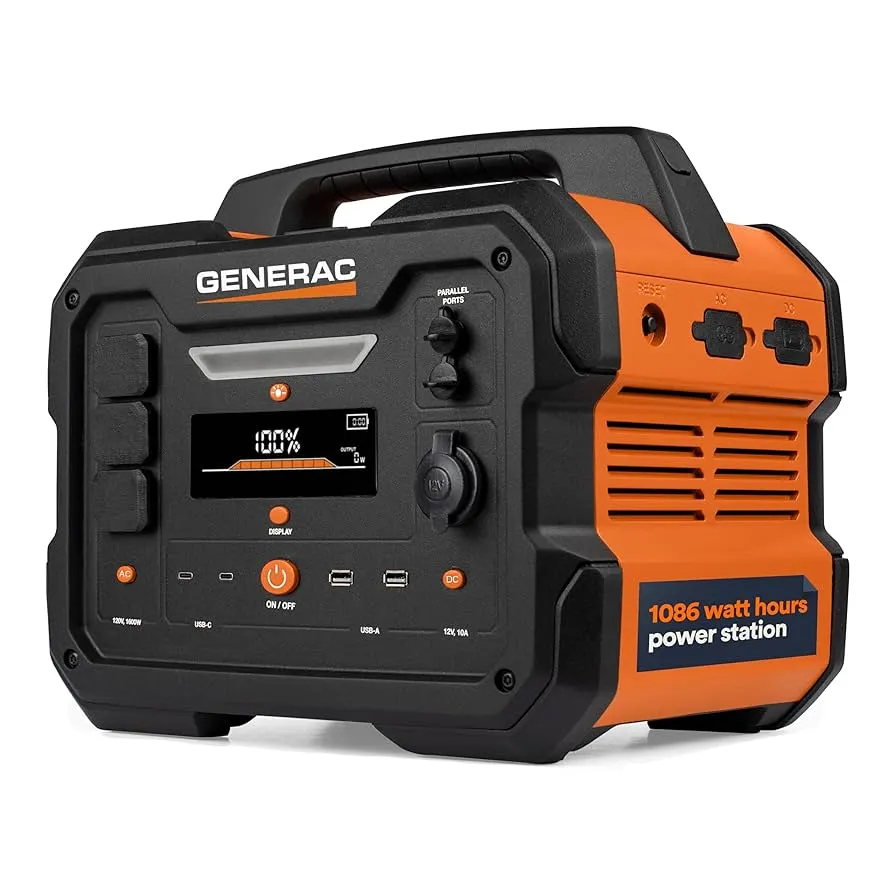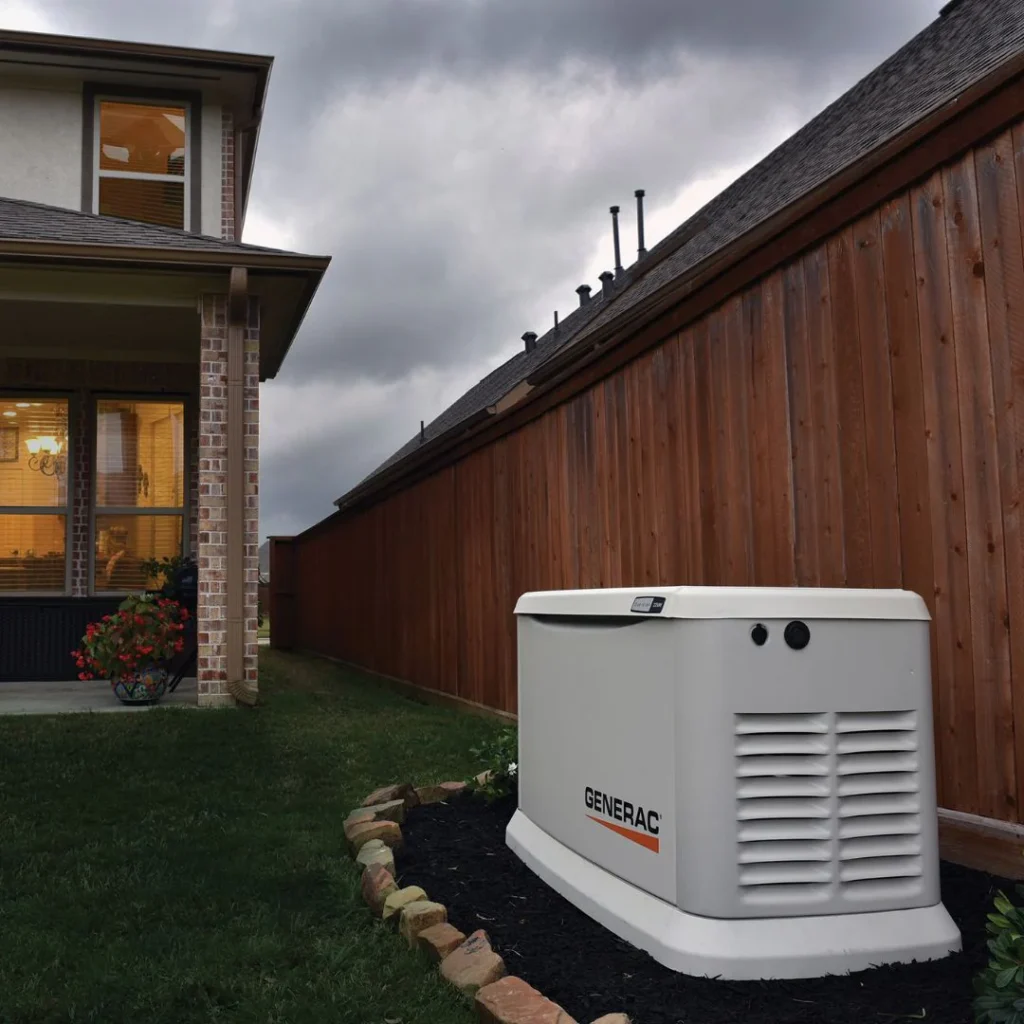Generac generators run on natural gas, liquid propane LP, or diesel. When people ask what does a Generac generator run on, the answer is simple – these fuel source options keep the generator running during a power outage.
Natural gas and propane are common for homes, while diesel is often used for businesses or heavy power needs. Your fuel choice affects runtime, cost, and care.
At Grounded Electric, many customers ask how Generac generators work and which fuel is best. With years of experience, head electrician Robert “Bobby” Mulholland and project manager Barret Abramow give clear advice on every installation.
Our goal is to provide a safe setup that offers peace of mind and reliable standby generator protection for 24 hours a day during storms or extended power outages. For families who need a trusted home backup generator, we ensure steady home backup power when it matters most.
Key Takeaways
- Generac generators run on natural gas, liquid propane LP, or diesel, and each fuel source changes runtime, cost, and care needs.
- Natural gas gives an endless supply through a utility line, propane stores well in rural areas, and diesel provides strong power for heavy use.
- A 20-kW unit may burn 2–3 gallons of propane an hour or about 250–300 cubic feet of natural gas an hour.
- Weekly tests, seasonal fuel checks, and yearly inspections keep a home backup generator and standby generator ready for long outages.
Generac Generator Fuel Types
Generac generators are designed to run on natural gas, liquid propane LP, or diesel. Homeowners searching “what does a Generac run on” want to know which fuel source fits their needs. At Grounded Electric, Bobby Mulholland and Barret Abramow guide customers through these options to match every property.
Fuel Use and Tank Size
A 20-kW model may use 2–3 gallons of propane per hour at half load or about 250–300 cubic feet of natural gas. Plan for a 250–500 gallon propane tank for long outages, or confirm that your natural gas lines can handle the BTU demand.

Before installing any generator, schedule a home electrical safety inspection to confirm that wiring and panels can handle the load of a home backup generator or standby generator.
A professional inspection ensures your fuel source and electrical system meet code before connecting to natural gas lines or propane tanks.
Natural Gas, Propane, and Diesel
Natural gas connects to existing gas lines for a steady supply. Liquid propane LP stores well for years and is ideal where gas service is unavailable. Diesel provides high torque for heavy loads but needs careful storage and more refueling.
Homeowners comparing options can review our list of the best diesel generator choices to see which models deliver reliable home backup power during extended power outages.
Fuel Comparison
- Natural Gas – Unlimited supply if utilities stay active, low maintenance.
- Liquid Propane LP – Long shelf life, reliable in rural areas, higher cost per gallon.
- Diesel – High power for big projects, needs more refueling and treatment.
Cost and Runtime Planning for Each Fuel Source
On average, a home Generac generator costs $1200-$20000. Choosing a fuel source affects not only reliability but also long-term costs.
- Natural Gas – Lowest operating cost for continuous use and best for areas with steady utility service.
- Liquid Propane LP – Higher price per gallon, but dependable where gas lines are not available.
- Diesel – Ideal for heavy loads but requires more frequent refueling and careful storage.
Homeowners planning for extended power outages should also estimate runtime. A 20-kW unit running on natural gas can provide home backup power for days as long as the gas supply remains steady, while a full liquid propane LP tank can keep a home backup generator operating for many hours or even multiple days, depending on load.
Solar Hybrid
Some systems work with solar and batteries to reduce fuel use and add renewable power.

Powering Your Home with Generac
When the power goes out, sensors detect the loss within seconds. The automatic transfer switch starts the generator, moves the circuits from the utility to the generator, and restores power smoothly. This process powers a Generac generator and keeps your home running during extended power outages.
If you use natural gas, the generator connects directly to your natural gas lines for a continuous supply without refueling.
Key Fuel Questions
- What Fuel Do They Use? Generac units run on natural gas, liquid propane LP, or diesel, depending on installation.
- Propane Operation – Many models run on propane, offering long storage life.
- Natural Gas – Standby units can operate on natural gas for days or even weeks if the supply remains steady.
- Out of Propane – If propane runs out, the generator shuts down until refueled.
Choosing between natural gas, liquid propane LP, or diesel depends on local access, storage space, and expected outage length. Grounded Electric reviews each property to recommend the most cost-effective fuel source.
Installation and Conversion
Correct sizing prevents wasted fuel and ensures enough power. Most homes need a 14–22 kW unit to cover essentials like HVAC and refrigerators. A professional check makes sure the generator is not too small or too large.
For detailed sizing guidance, see our guide on what size Generac do I need, which explains how to match a home backup generator to your property’s power demands and plan for extended power outages.
Fuel lines must be installed safely. Bobby Mulholland oversees every project to guarantee secure, code-compliant connections. Some models can switch between propane and natural gas if supply changes. A professional installation by a licensed generator installer keeps the system safe and protects the warranty.
Operation and Maintenance
Generac generators run an automatic test each week to stay ready. Before storm season, check fuel levels and inspect all connections. Routine service every 6–12 months – including oil changes and filter replacements – extends the life of the generator.
Bobby Mulholland reminds homeowners that regular care keeps everyone safe during bad weather and long, extended power outages.
Portable Generators and Other Power Systems
Not every home needs a full home backup generator. Some families use portable generators for smaller jobs or short outages. Portable units provide quick power but require manual setup and regular refueling.
Grounded Electric installs both portable and permanent power systems, and our licensed generator installer can help choose the best solution for reliable home backup power.



